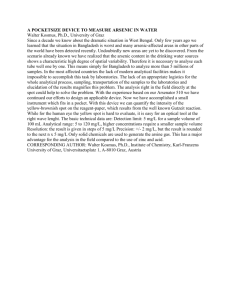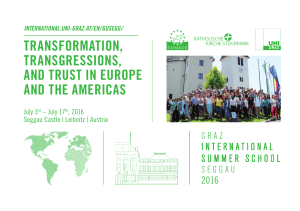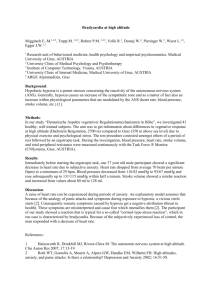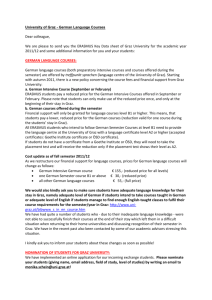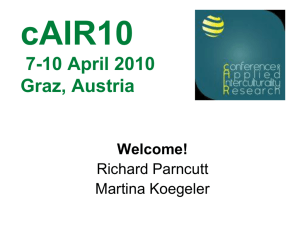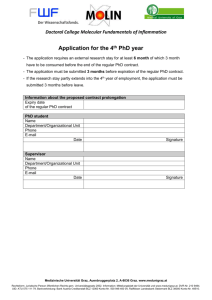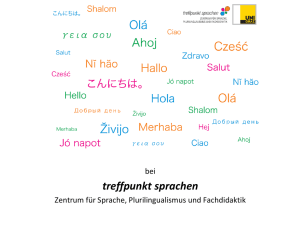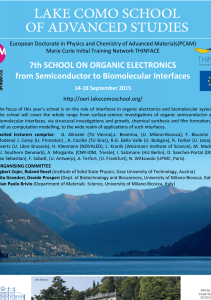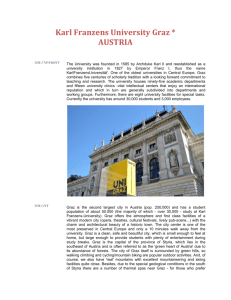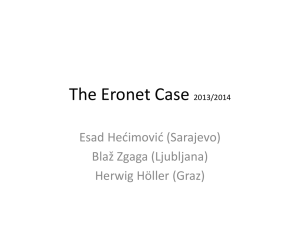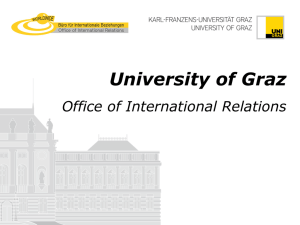University of Graz
advertisement
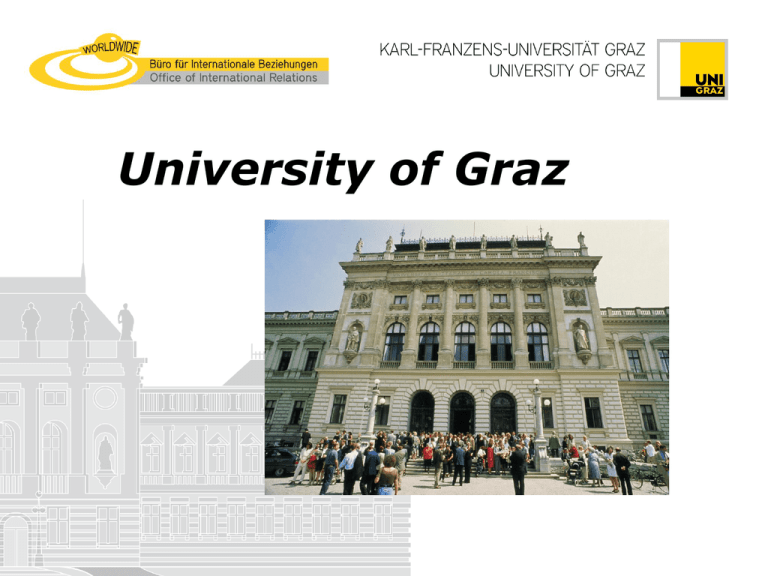
University of Graz Graz UNESCO’s World Heritage Cultural Capital 2003 UNESCO City of Design 2011 Inhabitants: 270.000 (second largest city in Austria) Students: more than 45.000 4 Universities 2 Universities of Applied Sciences (FH) 2 University Colleges of Teacher Education Graz – in the heart of Europe ©Nagy/Presseamt München Munich Vienna Bratislava Maribor Venice MasterLu/Fotolia.com Zagreb ©Jurij Pivka/ www.slovenia.info Graz – starting point for diverse activities Schöckl* Riegersburg* Thalersee* GRAZ Steirisches Weinland* ©Schladming Dachstein Buschenschank* *Copyright Graz Tourismus Facts and Figures Founded in 1585 7 organisational units: 6 faculties, 1 university administration 76 departments 30,000 students 4,700 new students – 2,600 graduates per academic year, of which approximately 200 receive a doctor’s degree – 100 study courses – 3,800 employees, of which 2,600 are scientists – 180,000 m2 net floor area – A budget of 184 million euros per year Study Offers 100 Fields of Study Diploma Programs 76 Departments Secondary School Teacher Accreditation Programs Bachelor Programs Master Programs Doctoral Programs 3.900 Staff (total) - including: 2.700 Academic Staff 31.500 Students 4.650 Beginners 3.000 Graduates Students Humanities Natural Sciences Social and Economic Sciences Law Catholic Theology 8.200 6.211 •About 31.500 Students from 100 different countries •(Data: winter term 2012/13) 6.065 5.054 606 Environmental and Regional Sciences and Education 5.071 Interdisciplinary 777 About 17 % international students: mainly from neighbouring countries, SEE, EU and USA (Data: winter term 2011/12) Research core areas Inter-university research core areas •Modeling and Simulation •Molecular Enzymology and Physiology •Brain and Behaviour •Environment and Global Change University research core areas •Heterogeneity and Cohesion •Cultural History and Interpretation of Europe •Learning – Education – Knowledge Research Centers at the University of Graz •Center for Inter-American Studies •Wegener Center for Climate and Global Change •European Training and Research Centre for Human Rights and Democracy •Coordination Centre for Women’s Studies, Gender Research and Affirmative Action for Women •Center for Social Competence Mobility 1.000 outgoing und 800 incoming mobility students during the academic year 2011/12 500 partners worldwide - including: 300 partner universities in Europe Member of Utrecht Network, Coimbra Group and other networks International Mobility Students Degree-Seeking Students – Admission Office Mobility Students – IRO (with Admissions Office) Welcome Week Housing (Austrian Exchange Service) Buddy/Mentor System + Program of Events Support with visa/residence permit Academic Advising for all incoming mobility students German courses-Intensive Courses, Semester Courses Courses in Intercultural Competence Facilities for students with special needs JoinEU-SEE Students •JoinEU-SEE I : 67 Students •JoinEU-SEE II: 33 Students •JoinEU-SEE III: 33 Students •JoinEU-SEE IV: 25 Students Language A lot of courses offered in English across the curriculum http://international.unigraz.at/en/s-inc/courses-in-english/ Full degree programs are taught in German, i.e. degree students (except PhD natural sciences) need a proficiency of C1 in German at the time of application Picture: Janine Comstock Thanks for being all ears! maren.leykauf@uni-graz.at erasmus.mundus@uni-graz.at
